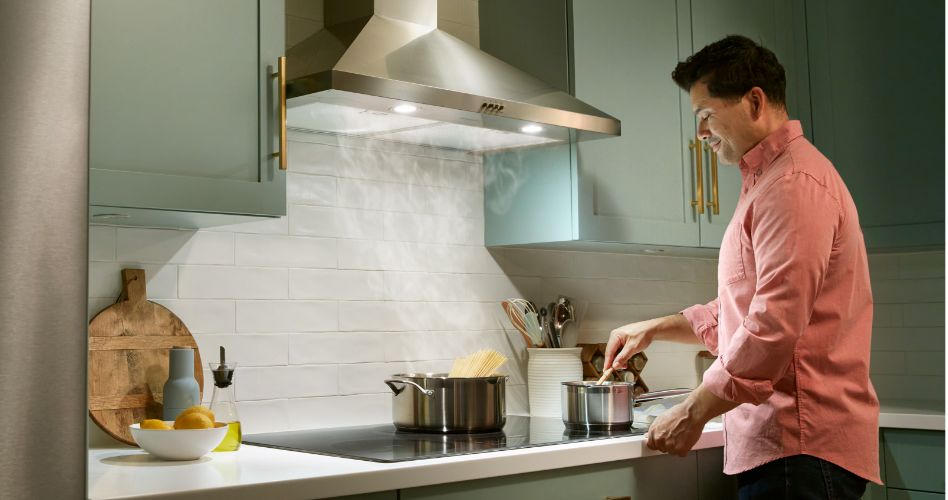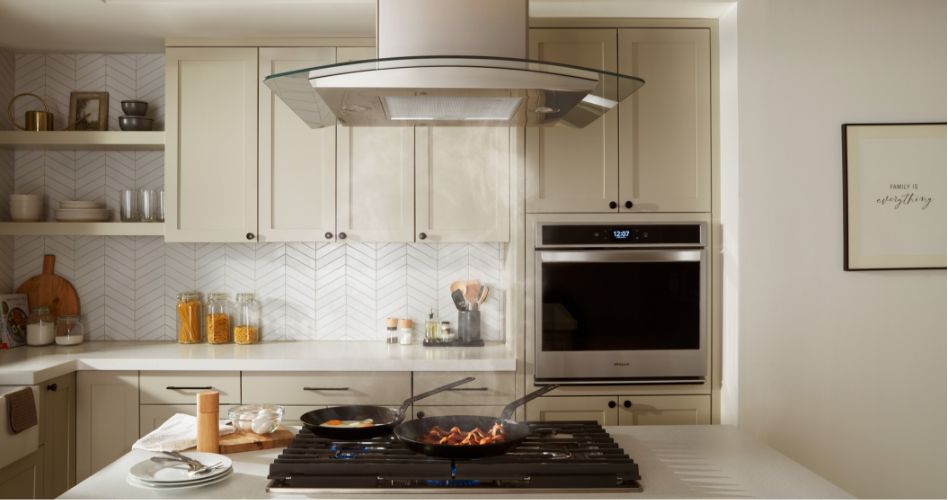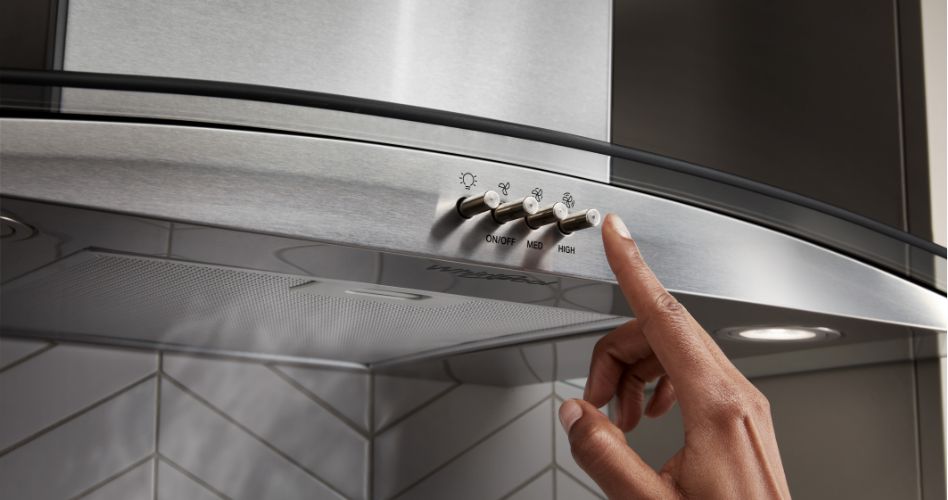
Appliance IQ: Kitchen
How many range hood cfm is required?
What is CFM?
Cubic feet per minute (CFM) is the measurement used for vent power. This gauges air flow velocity in and out of a particular space. Some manufacturers’ CFM ratings may include the certified ratings to HVI 916* Airflow Test Procedure or AHAM HRH-2-2019** Standards.
*Home Ventilation Institute (HVI)
**Association of Home Appliance Manufacturers
How to choose the right CFM
It's recommended to choose a ventilation unit with the right CFM level and one that’s the appropriate size for your kitchen and home.
If you buy a unit with a too-low CFM rating, it may be ineffective at ventilating the air in your kitchen. Incidentally, if you buy a ventilation system with too high of a CFM rating, it can produce negative pressure, removing air from areas in your home. In this case, you'll have to find a different method to replenish the air in your home - this is called a make-up air system.
Several factors will determine a unit’s minimum CFM requirements. One such factor is your preferred cooking techniques. If you often sear, fry or blacken, you will probably need a higher CFM rating to refresh the air effectively. The same applies if you typically use four or more burners. On the other hand, if you often simmer and sauté or usually only use only two burners, you can get by with a lower CFM rating.
The higher the CFM level, the louder the hood will be.
Radiant and induction cooking surfaces
Radiant and induction cooking surfaces produce less heat than their gas counterparts, and their CFM rating is typically between 200 - 400 CFM. Ultimately, this depends on the number of burners and the power you use most often.


A range hood’s width should match the width of a radiant or induction cooking surface. Hoods are commonly found in 30”, 36” and 48” widths to match common stovetops and cooktops sizes.
Gas cooking surface
Most manufacturers publish the BTUs, or British Thermal Units, of their cooking products. BTUs measure heat energy and, on a gas range or cooktop, are the primary way to quantify cooking power. With this information it’s easy to calculate the CFM required. If you often use every burner and cook on high heat, just divide the total BTUs by 100. The result is the required CFM.


Additional note
Certain building codes mandate adequate make-up air provisions for the use of range hoods. The precise CFM requirements depend on the location and the specific installation method. The best approach is to consult your City Bylaws for exact information. It’s also recommended that you consult with an HVAC professional to confirm the correct requirements for your area.
Whirlpool ventilation products
Now that you know all about CFM requirements for ventilation products, it’s time to browse Whirlpool models to find the best solution for your kitchen.

